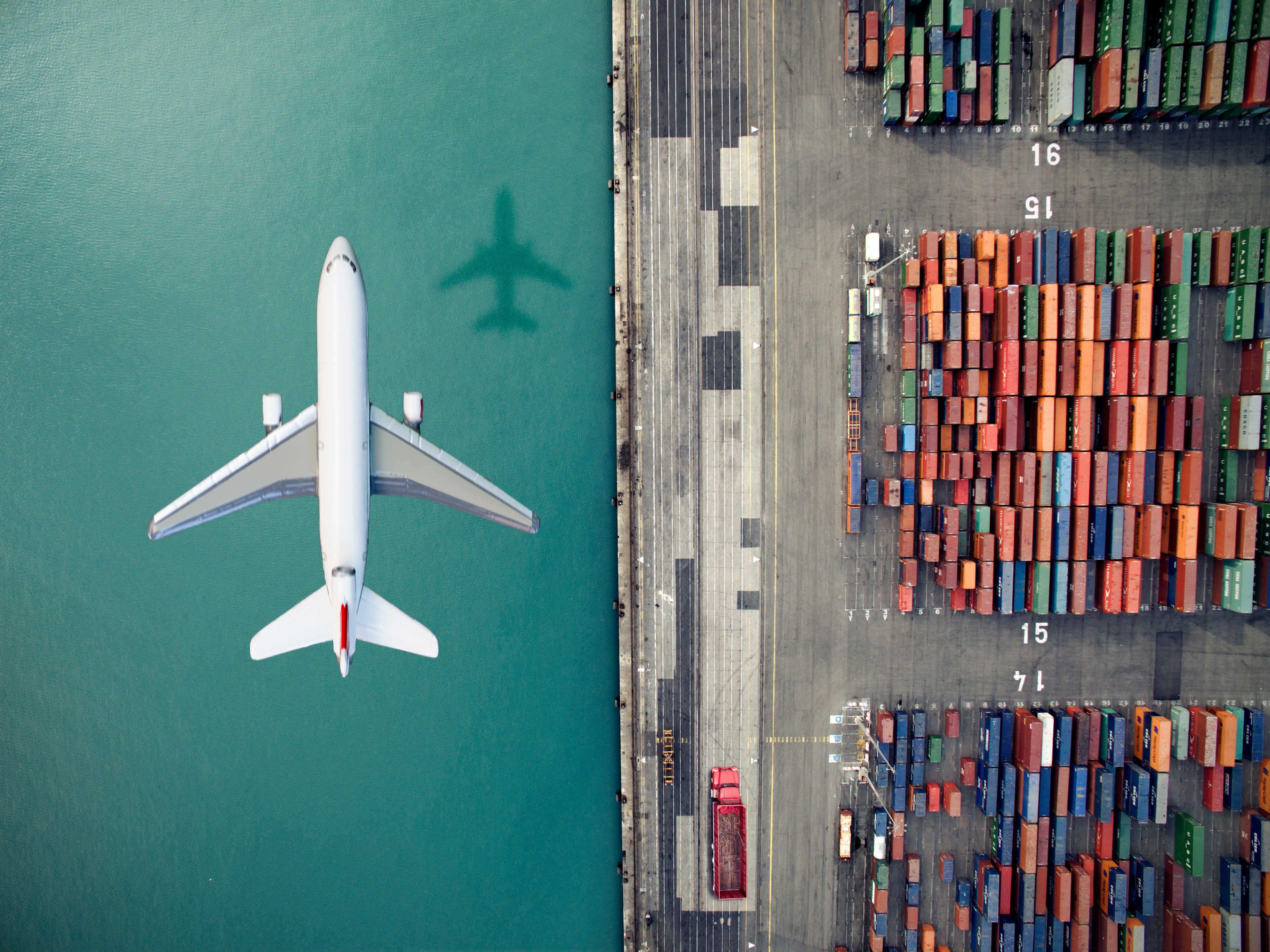Global Logistics Update
Freight Market Update: December 29, 2020
Ocean and air freight rates and trends; customs and trade industry news plus Covid-19 impacts for the week of December 29, 2020.
Freight Market Update: December 29, 2020
Ocean Freight Market Update
Asia → North America (Transpacific Eastbound)
- A substantial rate increase is expected in the market. Carriers are still identifying their rate levels only days before the start of the new year.
- Capacity: Recommended advanced booking notice remains 21 days prior to CRD. The traditional POLs facing difficulty (Ningbo, Southeast Asia and Busan) are still facing the greatest equipment shortages.
- Equipment and space-release issues continue to push out planned departure: flag urgent cargo as early as possible to your CS team so they can present the best options available.
Europe → North America (Transatlantic Westbound)
- Rates: North Europe: Steady; Mediterranean: Steady
- GRI December 15: Implemented ex-North Europe origins
- GRI January 1: Likely Implemented (North Europe and Med)
- Capacity: Recommend advanced booking notice 21 days prior to CRD.
- Notes: Premium options remain available for booking placed at shorter notice. The strong market is expected to continue through February as carriers report full vessels 3-4 weeks ahead of expected departure. Expect further rate increases to be announced in January.
- Equipment shortages in Germany, Italy, Spain and Portugal in particular for 40 dry and reefer containers. Ongoing severe EQ shortages in Turkey.
- Port congestion: North Europe and North America are vexed by congestion, showing no signs of easing in the near future. UK ports face gridlock, cascading the congestion in continental Europe port hubs. In particular, Rotterdam and Hamburg are heavily congested and some terminals are not accepting export containers for gate-in ahead of CY cutoff. North America port infrastructure struggles with record high import volumes, specifically in LA/LB.
- Capacity development: No blank sailings have been announced after week 2.
India → North America
- Rates: Increasing
- GRI December 15: Rates extended with most carriers
- GRI January 1: Will be implemented
- Capacity: Tight due to limited equipment and feeder port omissions
- Equipment: Continues to be an issue—please make bookings in advance so we can plan for container availability at your local ICD/wet port. Equipment is especially limited in South India ports.
- Colombo congestion continues to impact the ISC feeder network but is starting to improve. Carriers are continuing to redirect cargo to other transshipment ports such as Mundra or Port Klang until mid-January when the congestion is expected to let up
North America → Asia
- GRI January 1 : Likely implemented for certain commodity segments.
- GRI January 15: Some carriers have given notice of a $100 per 40’ increase for mid-January.
- Capacity: Recommend advanced booking notice 7-10 days prior to CRD at Port.
- Capacity: Recommend advanced booking notice 10-14 days prior to CRD at Rail Ramp.
- Chassis availability is tight at most major ports and rail ramps. Recommend factoring in more lead time for truckers to procure chassis.
- Port of LA situation remains very fluid. Vessel schedule integrity is completely off which has led to vessel-bunching and smaller windows for vessel operations once imports are discharged from vessels.
- South China barge service to be closed for January to avoid arrivals during the Chinese New Year. In response, all major carriers have suspended export bookings for these destinations.
North America → Europe
- Rates: Steady
- GRI January 1: Carriers announcing large Congestion Surcharges for all shipments destined to the UK effective 1/1/2021.
- Capacity: Recommend advanced booking notice 7–10 days prior to CRD at port.
- Capacity: Recommend advanced booking notice 10–14 days prior to CRD at rail ramp.
- Chassis availability is tight at most major ports and rail ramps. Anticipate more lead time for truckers to procure chassis.
- UK port congestion causing extensive delays both in cargo arrival times at the port and container movement on the ground moving in and out of the ocean terminals. To avoid this congestion, one major alliance has diverted its service to the port of Liverpool despite higher inland transportation costs to southern portions of the UK.
Factory Output News
The EU and China held the 35th round of negotiations on the Comprehensive Agreement on Investment (CAI) from Dec 6th to 11th, 2020. CAI’s core focus for this round is to provide new opportunities and broaden EU investors’s access to the Chinese market by eliminating some restrictions, equity caps, or the JV requirements. [source]
Vietnam is targeting for 6.5% gdp growth for 2021, up from a sluggish growth of 2.91% in 2020 [source]
Updates from Flexport's Customs & Compliance Team
USTR Extends COVID Treatment Product Exclusions from China Tariffs
In a December 23rd notice published by the U.S. Trade Representative (USTR), the agency announced that it would extend exclusions from the China Section 301 tariffs for certain medical-care products utilized in efforts to combat COVID-19 from January 1, 2021 to March 31, 2021. The USTR also announced that they would be adding several COVID treatment-related products to the exclusion list.
Commerce to Require Licenses for Aluminum Imports Starting January 25th
In a final rule published in the Federal Register on December 22nd by the U.S. Department of Commerce (Commerce), the agency announced new licensing requirements for imported aluminum products will begin Jan. 25, 2021 with the adoption of the Aluminum Import Monitoring and Analysis (AIM) system. The AIM system will require importers to apply for and obtain an import license for each entry of certain aluminum products and identify the countries of origin where the largest and the second largest volumes of primary aluminum used in the manufacture of the imported aluminum product were smelted (subject to certain exceptions) and the country where the aluminum product was most recently cast.
Customs Issues Guidance on Filling GSP After Expiration
In a CSMS message posted by Customs & Border Protection (CBP) on December 21st, Customs advised importers to continue to flag Generalized System of Preferences (GSP) eligible importations with Special Program Indicator (SPI) “A” after GSP’s expiration at the end of the year, even though there is no immediate plan for renewal in place. Though the general rate of duty must be paid on these imports starting January 1, 2021, CBP says it “has programming in place that, in the event that GSP is renewed with a retroactive refund clause, will allow CBP to automate the duty refund process.”
Freight Market News
Nations Weigh EU Emissions Plan An EU plan to add a new carbon tax to cargo ships has some nations objecting to the cost and claiming the efforts undermine recent IMO work to reduce global emissions, according to the Wall Street Journal.
Carriers Respond to FMC Scrutiny The World Shipping Council sent a letter to the Federal Maritime Commission highlighting its recent efforts to relieve supply chain bottlenecks. The Journal of Commerce specifies the carriers’ efforts to deploy and reposition all available vessels and containers, after the FMC issued a mid-December warning regarding carrier refusal of exports.
Trucks Leave UK After Covid Mutation A delay of several days at the English Channel border is slowly unclogging as France eases restrictions following the rapid spread of a new Covid-19 variant. The Independent reports the queue to leave the UK originally included up to 3,000 drivers.
Freight Market Update is a free service from Flexport, the modern freight forwarder. If you're not already a subscriber, we invite you to subscribe here.
Please note that the information in our publications is compiled from a variety of sources based on the information we have to date. This information is provided to our community for informational purposes only, and we do not accept any liability or responsibility for reliance on the information contained herein.


